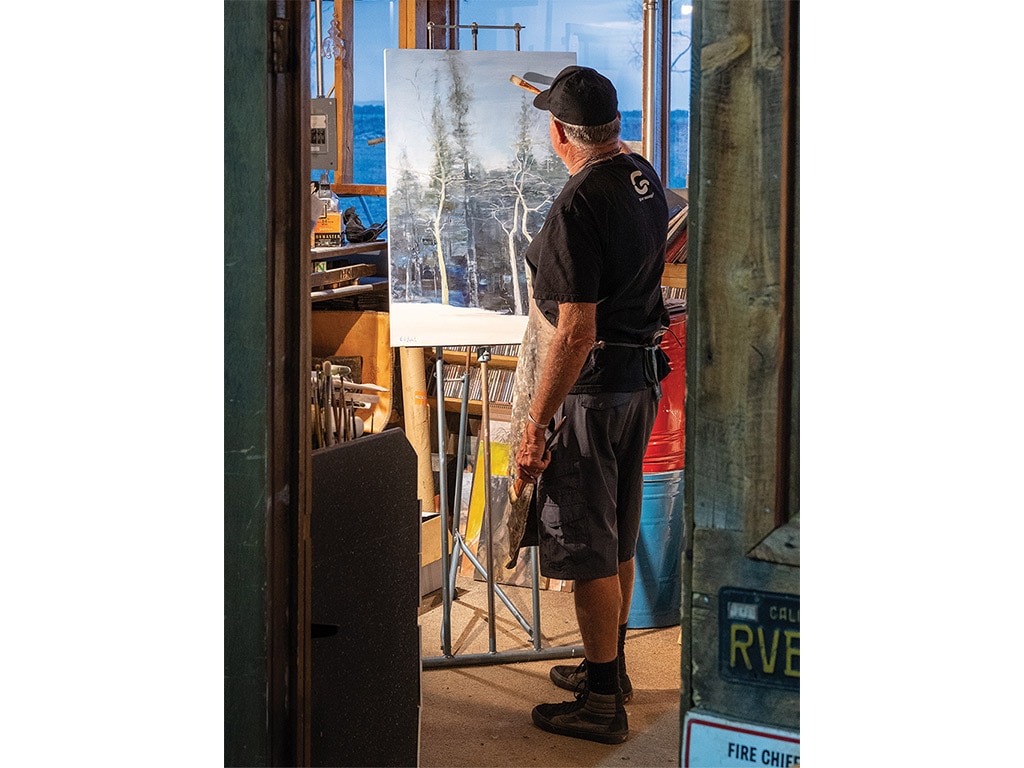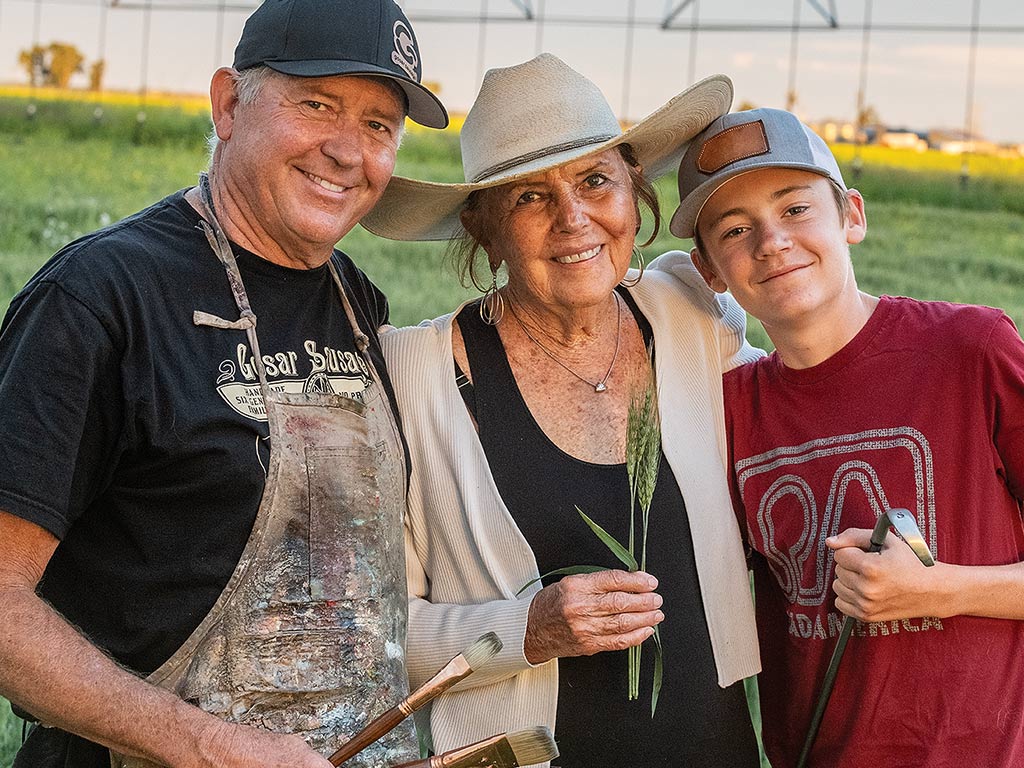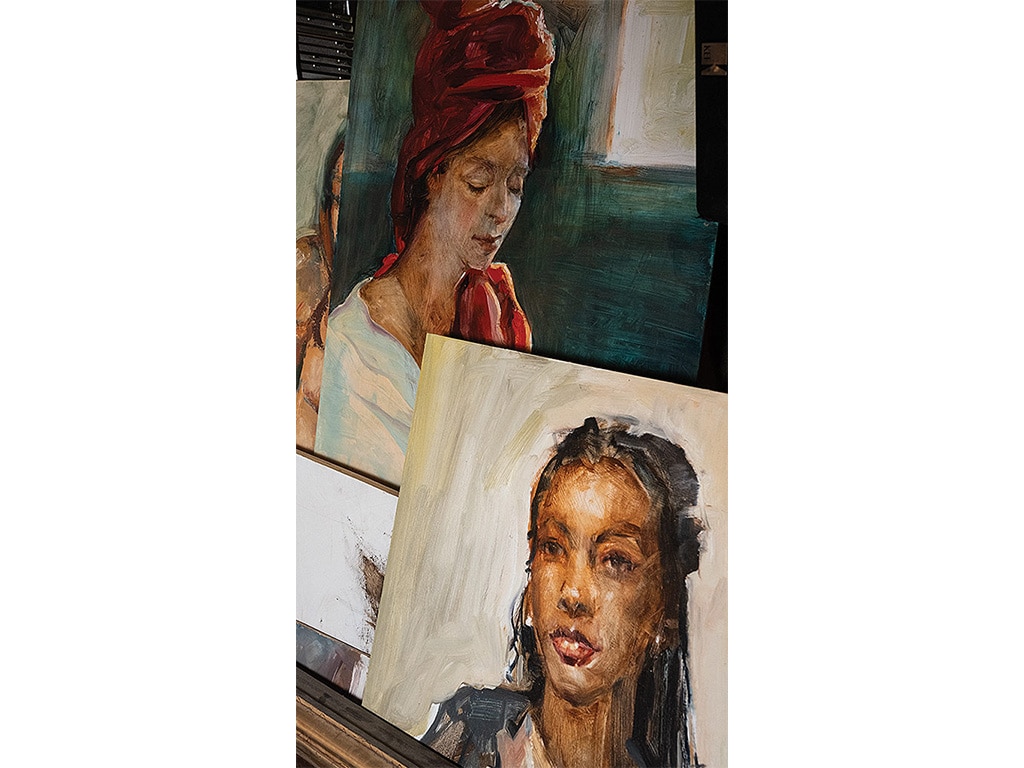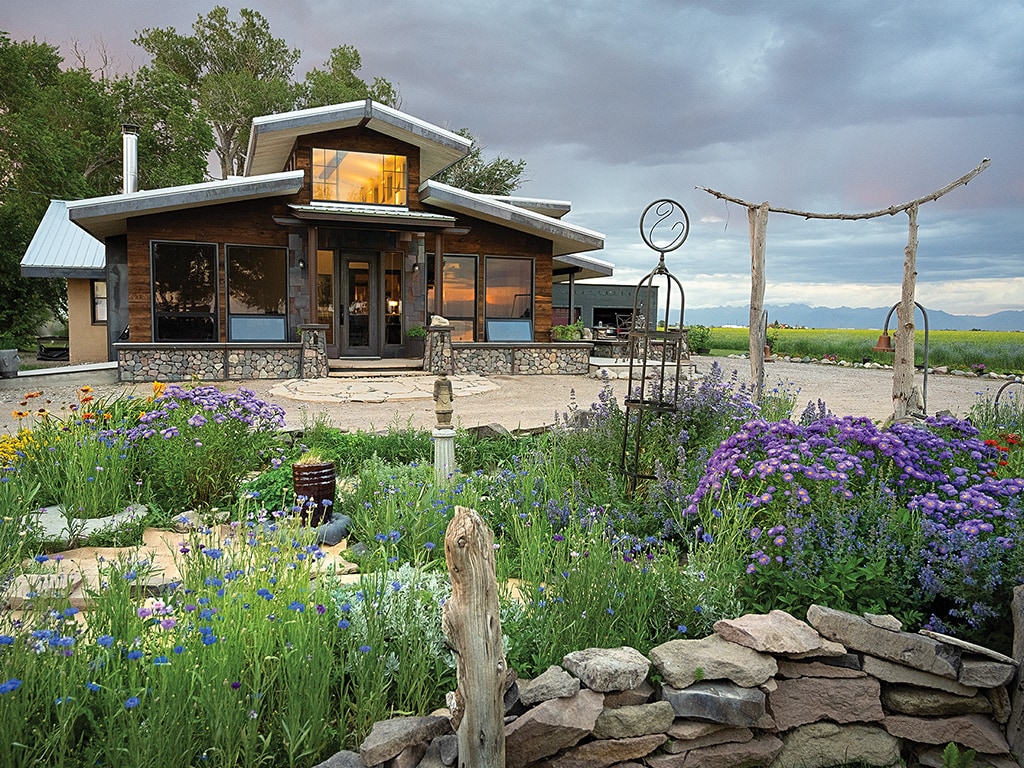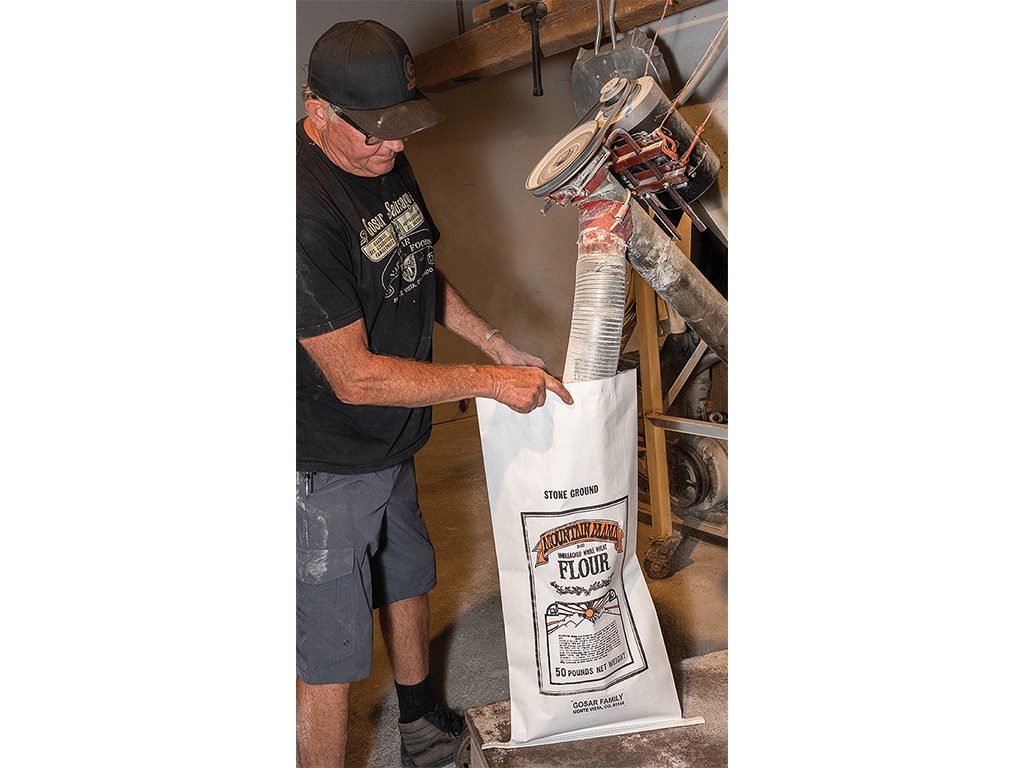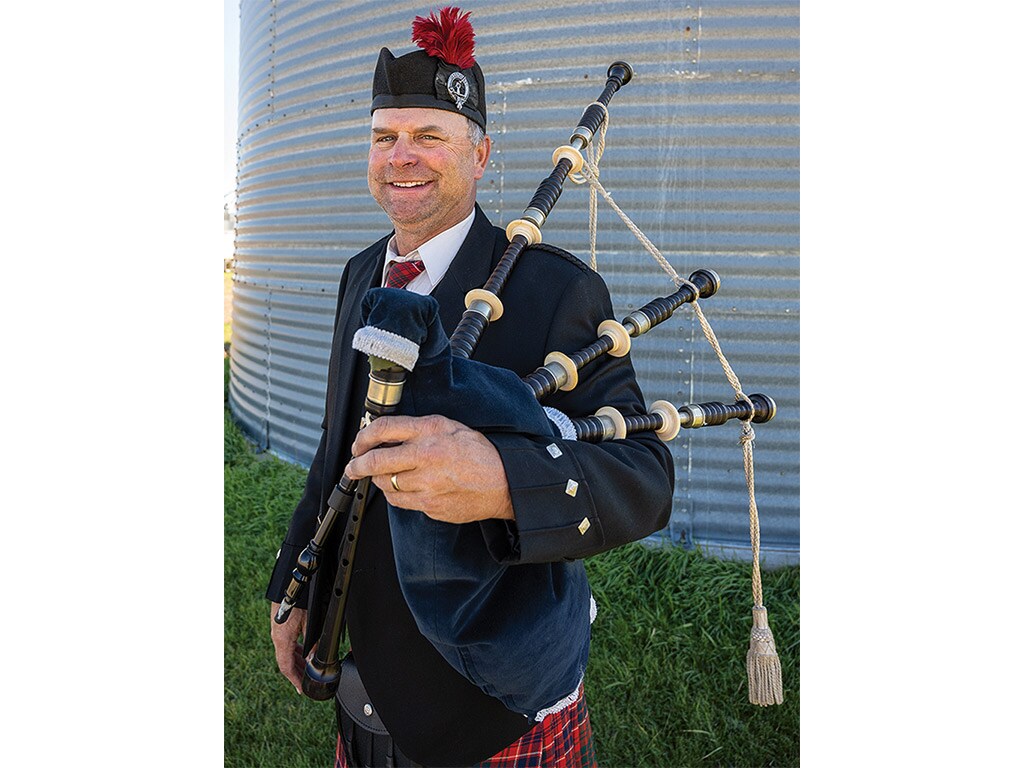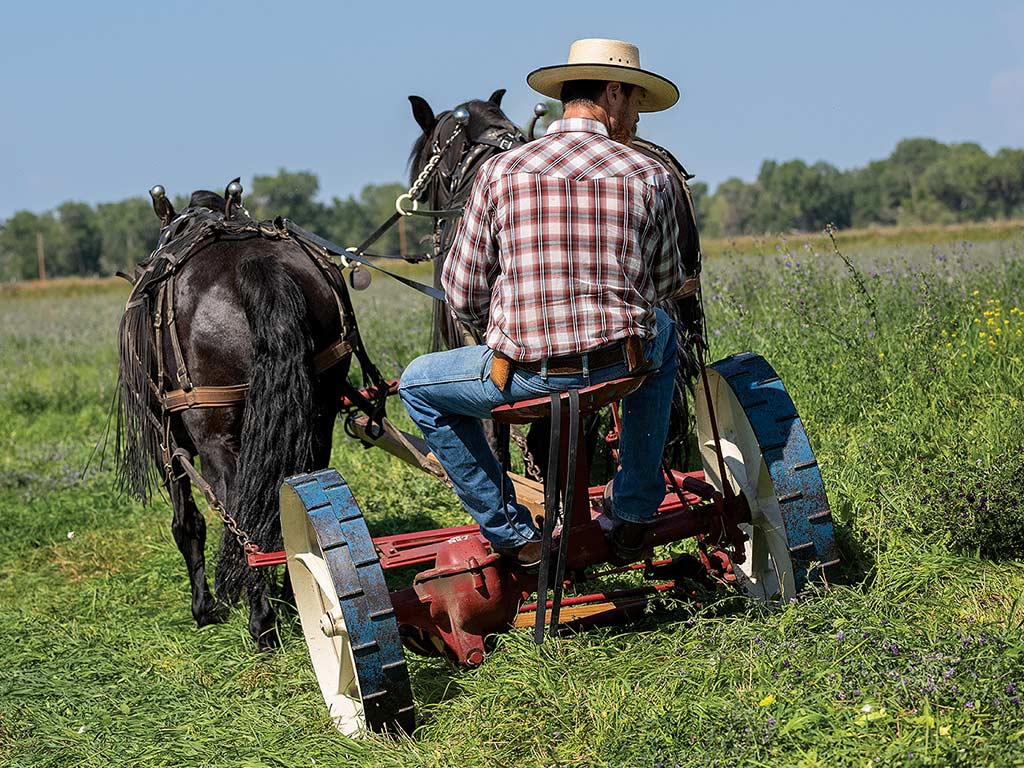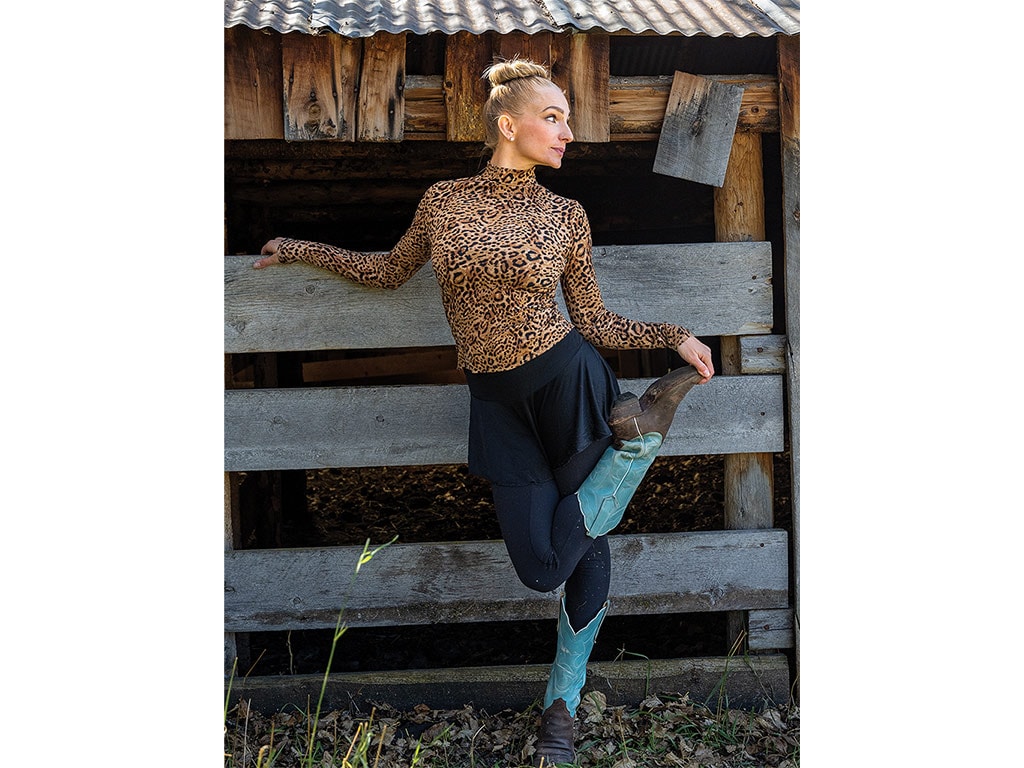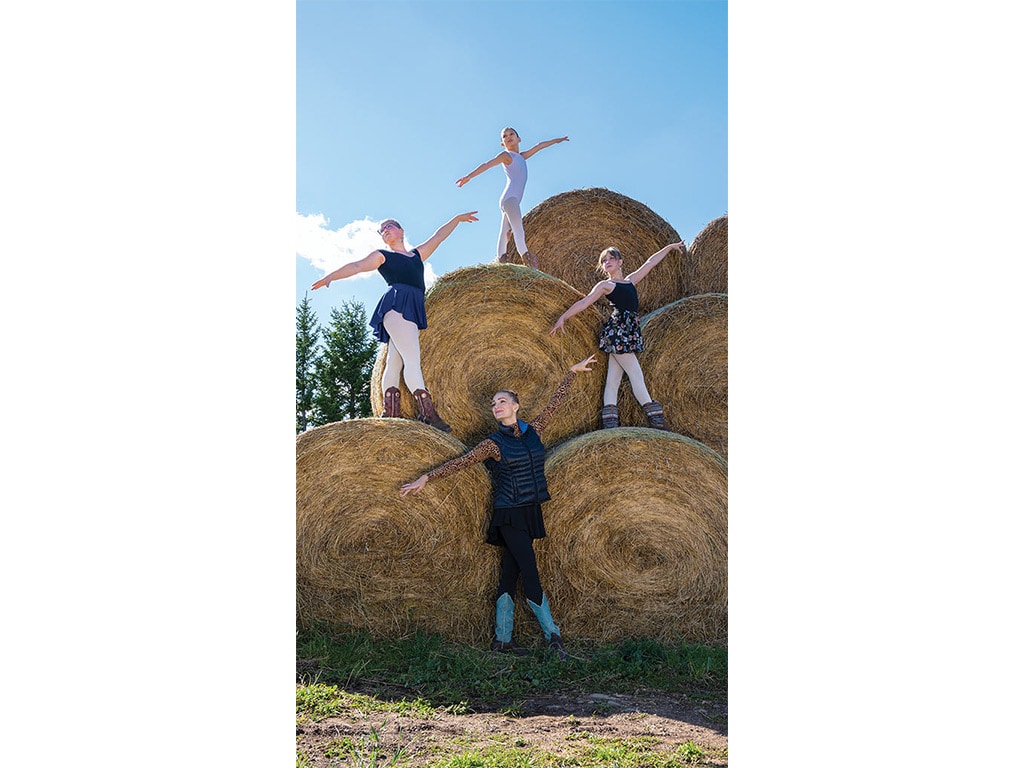Agriculture, Education February 01, 2024
All Work and No Play…Is No Joke
.
Embracing fun, community, music, and creativity grows resilient farm families at all ages and stages.
Mesa Valle demonstrates her ability to stand on the very tippy tips of her big toes as she ruminates on the idea of a fun-free day.
"Being on my toes helps me reach things," the 8-year-old explains, still sporting hay-snagged tights from an impractical photo shoot combining round bales and a class of boot-clad ballerinas.
Going en pointe is easy compared to the concept of not having fun. "I could find work rather fun. I could leap around while I'm cleaning, or skate on the floor with sponges," she says.
Play and creativity are effortless for children. They are not effortless for most adults. Adults have important things to do. There are serious consequences for neglecting their responsibilities.
The more responsibilities stack up, the more serious adults tend to get. Those that play, create, and take time off in adulthood are often judged harshly by peers.
Calling someone a 'goof off' isn't a compliment. Who among us hasn't said, 'Must be nice!' when someone takes a vacation. 'Lazy' may be the worst insult you could sling at a farmer or rancher.
Let's apply that thinking to an engine. When it's overheating, is it best for long-term productivity to have it power through the job? Probably not. Is the engine lazy if it needs a break to cool off or to fuel up? Is continuing to run an engine with a broken part going to result in the engine miraculously fixing itself? No.
So why do we work when we're sick and tired? Why do we wait until after harvest to see the heart doctor? Why don't we take more days off, make time to go to the concert or football game, or even just wrestle around on the living room floor with our kids?
Scott and Traci Glasscock intentionally take the time these days. The Angela, Mont., couple farm 13,000 dryland acres and have a commercial cow/calf herd.
There's always plenty of work to be done, but on a beautiful October day when there was still wheat to plant and 99 other tasks piling up, the pair parked the tractor and hit the road for some quality family fun time.
They drove multiple hours to watch their son Ben play college football and their daughter Alli play high school basketball.
"I really didn't think I had time to get away, but when I did, I enjoyed myself," Scott says. "I forgot about what was going on at home and it refreshed me. Even when I got home I was less stressed about all the things I had to do."
The wheat still got planted, the sprinklers got blown out, and there were more smiles throughout. That hasn't always been the case.
"When you're young, you think money or how much work you do is the most important thing," he says. "As you get older, you realize there's always going to be work to do. Yes it needs to get done, but time with family is important, too."
Traci twice battling breast cancer helped drive this truth home. There are now more days spent at the lake and trips to watch games.
Above. Kris creates. "It was so fun and such hard work," Suzanne Gosar says of building a milling business with her husband. "Why do it if it's not fun?" This thinking helped her understand and encourage her son, Kris, to chase his passions instead of hers. Now Kris encourages the same of his children, Otto (14, pictured) and Cooper (17) . Kris Gosar constantly leans into creativity, including logo design, landscape art, and even the construction of his and his wife Jill's home using recycled materials. Scott Glasscock bagpipes for himself and his community. Bart Bilden slows the pace for peaceful work with antique equipment and old-fashioned horsepower. Annie Valle brings ballet to her rural community. Students including her daughter Mesa (top), and sisters (center) Gracie (L) and Liberty (R) Glick are taught at the community hall. The children thrive as they practice and advance their art.
Following joy. Like water eroding the landscape, time etches a record of our true nature on the face we share with the world. Kris Gosar's is well-weathered by smiles. A cheerful crinkle gets further defined when Kris is asked if he considers himself a happy person.
"Totally! Absolutely! I work hard, but I enjoy every second. I feel 110% fulfilled in life," he says.
His current reality almost wasn't the case. Today he runs two legacy family businesses, Gosar Sausages and Mountain Mama Milling, in Monte Vista, Colo. He's also an architect, designer, art teacher, race car enthusiast, and a remarkably talented artist.
His parents were passionate farmers, models, and considered hippies—"Not considered, were! We were total hippies," his mom Suzanne interrupts with great glee. Their farm was one of the first certified organic in Colorado.
Kris grew up milling flour. He was pursuing a degree in architecture when a teacher glimpsed his sketch book and encouraged him to apply to the 'Harvard of art schools,' ArtCenter College of Design in Pasadena, Calif. He got in.
Kris' dad Greg, a concert violinist himself, understood the value of art and creativity and was happy to drive his farm kid to art school.
When Kris speaks of his time there, he unabashedly chokes up. "The creative part of me just lit on fire. It was a gift. A total gift," he says.
After graduating he worked briefly in Hollywood. But Kris missed the beautiful farm life he knew in the San Luis Valley. He came home to work the farm.
"I tried to bridge both worlds," he says. "Farming was consuming. I remember working, working, working all day and not having enough energy to paint or draw at night. Day after day I felt my art leaving."
Still he continued. Then his dad suffered injuries resulting in him being unable to play his beloved violin. This bothered Kris greatly.
"I knew it was his passion and I could see the impact of him losing that outlet," he says. It was a fate he saw slowly playing out in his own life. "I couldn't stand it anymore, so I quit. It was tough, but my dad understood why I had to."
Kris kept milling, but swapped field time for creative work ranging from logo design to fine art. The land was sold, but the fields continue to supply wheat for the mill. Farm buildings are exclusively used for sausage making, flour milling, and pursuing creativity.
The bulk of his creative work occurs in winter. He paints, draws, designs, and teaches art at a local college. He found balance, and in that balance, joy.
Creating community. Taking time off and pursuing creative outlets often yields more than individual benefit. Those who create often also build community.
Annie Valle is a ballerina, rancher, and mother. From age six, she trained at top ballet academies, performing in prestigious productions with premier choreographers.
Today she home schools her rowdy ranch kids, cooks for hunters, gardens, milks cows, makes parts runs, and teaches ballet to children in their remote, Martinsdale, Mont., community.
"[Teaching in a rural community] has been more gratifying than anywhere I've taught or choreographed before. The kids latch onto the opportunity," Valle says. "It transforms them into different versions of themselves."
"It makes me happy when I'm doing something beautiful. I feel graceful," says 15-year-old Gracie Glick, one of Valle's students.
She's also learning grit. Ballet, like many arts, isn't a natural gift. It must be practiced, developed.
"Growth isn't linear. They work so hard then all of a sudden they can just do something they couldn't do six weeks ago. It takes work and discipline but there's much reward," Valle says.
Practicing and teaching ballet also fuels Valle's happiness.
"There were times I felt deeply alone here," she says. Ballet connected her with her community and reconnected her with her art.
In tune. For Washtucna, Wash., wheat farmer Brett Blankenship, music bleeds into all aspects of his life. The trained concert pianist credits music with teaching him discipline, problem solving, and growing confidence in leadership.
"I have music going in my soul all the time. Whatever music I'm working on is repeating 24/7 in my head. It's the same with issues I need to resolve on the farm. The skills all come together," says the former National Wheat Growers president.
He uses music to process emotion, a tip from a mentor teacher at Eastman School of Music.
When in turmoil, Bach is in order as he followed strict order in his compositions. When angry or passionate, Beethoven. Romantic, Chopin. "If you're sad, go to Mozart. Even when Mozart is sad, it sounds a little bit happy," he says.
Live music is essential.
"The catharsis of performing creates a dramatic internal release for me," Blankenship says. Similar joy is created when he attends a performance or sees art in real life.
For Glasscock, performance is a service. He plays bagpipe in the Miles City Caledonian Pipe Band.
"In May I'm seeding crops, spraying, and working cattle," he says. It's hard to take a day off, but people expect to see him piping in the annual Bucking Horse Sale parade. "It's not just about me, it's about the community, too."
Time is too often our excuse.
"Our worst mistake in life is not taking the time for the people connections, the 'soulish' connections we need," Blankenship says. "We'd be much happier—personally and as a society—if we made more time for soulish pursuits." ‡
Read More

AGRICULTURE, EDUCATION
Your Top Tool
The most important tool in your shed is the one in your head. Keep it sharp.
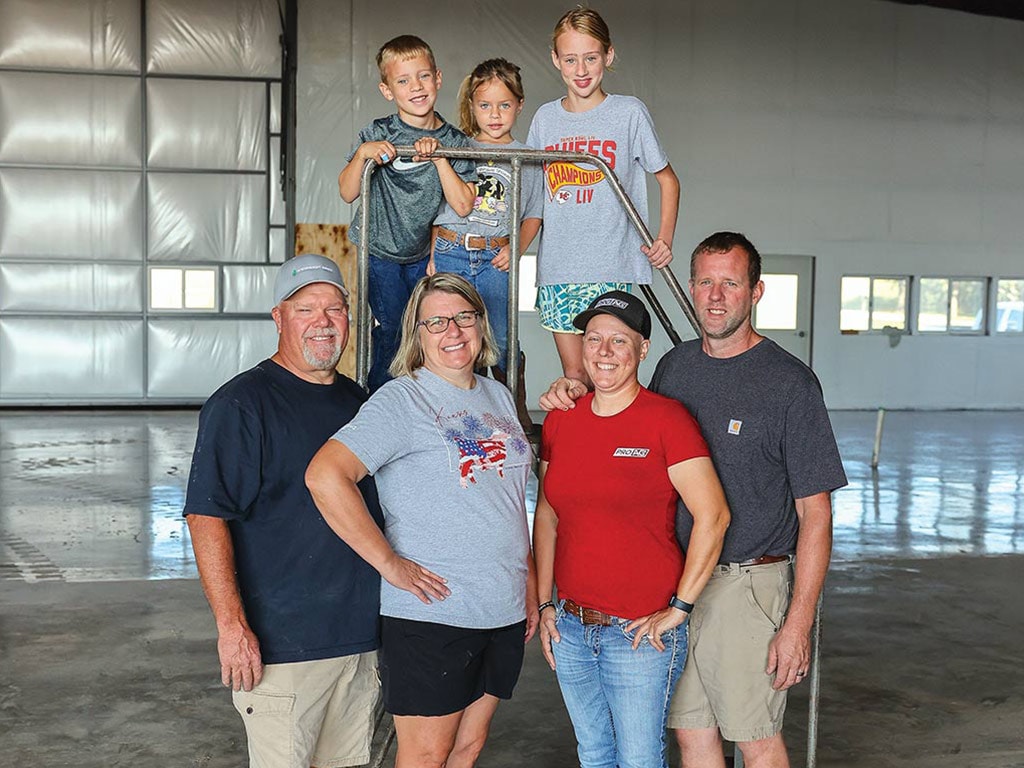
AGRICULTURE, FARM OPERATION
Lasting Legacy
How to pass the farm down to non-family members.


